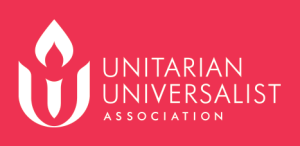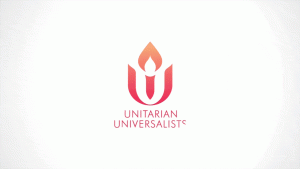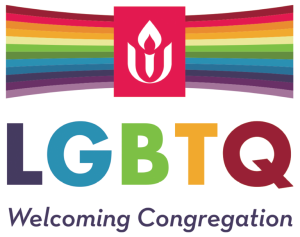AIW: COVID-19
Action of Immediate Witness: Centering Love Amidst the Ongoing Impact of COVID-19
Primary Proposer: Meghan Garvey of the First Unitarian Church of Rochester
Additional Proposers: CB Beal, Rev. AJ van Tine, Rev. Sarah Caine, Rev. Caitlin Cotter Coillberg, and Samara Powers
Whereas, the emergency declaration for COVID-19 was terminated in 2023 without sufficient strategies in place to manage the persistent challenges of the virus, exacerbating its disproportionate impact on marginalized groups (i.e., disabled, uninsured and underinsured, incarcerated, BIPOC, LGBTQIA, older adults and youth, especially those of intersecting identities); and
Whereas, the current U.S. governmental approach to COVID-19 management still jeopardizes the lives of higher-risk individuals and leaves many unknowingly susceptible to the potential long-term impacts of COVID-19 infections; and
Whereas, the aforementioned governmental approach is creating a continuously growing void in COVID-19 information and management, exemplified by the discontinuation of data collection processes and vital public health interventions (i.e., dependable testing, access to vaccines and treatment, prevention and harm reduction education) and the limited support for Long COVID research; and
Whereas, the current political climate increasingly fosters disregard and even hostility towards individuals still exercising COVID caution, resulting in growing social and legal pressures to remove masks from public life and forcing higher-risk individuals to choose between essential participation in public life or avoiding COVID-19 infections; and
Whereas, our faith proclamations of love and justice call us to confront the ongoing disregard for those most vulnerable in our world and meet it with liberating counter-cultural norms in our communities; and
Whereas, in the current political, economic, and environmental climate, the importance of inclusion and living into communal interdependence is of the utmost life-saving importance; and
Whereas, in the absence of an appropriate governmental response to the ongoing risks of COVID-19, grassroots organizations and nonprofit organizations are leading efforts for the continuation of protective measures in the U.S.;
Therefore, be it resolved that the 2024 General Assembly calls for:
Congregational & Member Organization Action
● To communally examine and process the impact of the pandemic on our communities, particularly any urgency we’ve experienced to relinquish COVID-19 protocols for the sake of returning to “normal.” Unitarian Universalists hold a
sacred tradition of questioning the status quo, and it is in that tradition that we must reflect on what “normal” we long to sustain. Given the lessons our communities learned living into the 2021 Action of Immediate Witness “The
COVID-19 Pandemic: Justice. Healing. Courage”, particularly how we learned to include those who were already experiencing isolation and exclusion from our communities in a 2019 version of “normal,” we are called to reflect upon any
barriers keeping us from holding onto the pandemic-induced community care practices which so effectively countered isolation and fostered radical inclusion.
● To build off of the aforementioned community reflections and recommit to making our spaces accessible for our congregational/member organization participants and staff who are higher-risk, otherwise identify as COVID-cautious or were already experiencing isolation and exclusion from our communities in a 2019 version of “normal.” While the wording of this AIW intentionally leaves flexibility for communities to adopt practices that make the most sense for the particular
(likely complex and possibly competing) accessibility needs of their communities, at minimum, this AIW is asking communities for:
- continuing the shift to mask-affirming culture
- openness to experimenting with different community-created gathering approaches to maximize access for all, centering the needs of higher-risk, disabled, and otherwise COVID-cautious people in the decision-making
processes - protocols to ensure that congregational/member group participants and staff can refrain from attending in-person events while they are experiencing symptoms of acute illness or have been recently ill
- moves toward meeting the ventilation and filtration standards consistent with the scientific standard laid out in ASHRAE 241 Control of Infectious Aerosols (as financially possible)
Congregations and member organizations are additionally asked to carefully reconsider their community’s potential need for the adoption of additional disease transmission precautions, including, but not limited to, two-way masking practices
and social distancing practices. If, in adopting any updated practices, a community chooses to integrate masking requirements, such requirements should include exceptions for people for whom mask-wearing is inaccessible and
ensure the availability of free masks for individuals for whom masking is cost-prohibitive.
● To identify and work to form partnerships with local disability organizations working on COVID-19 justice, and community-organized “mask blocs”. Partnerships might include offering event space, plate offerings for supplies,
storage for their supplies, hosting their community stands, or supporting their efforts to respond to local community and legislative challenges to COVID caution.
Unitarian Universalist Association Action
● To create channels of support for congregations and member organizations in brainstorming, implementing, and troubleshooting the aforementioned community care and accessibility approaches while modeling such practices in
UUA-sponsored events and meetings.
● To work to form active partnerships with organizations leading the way in COVID-19 policy advocacy so that Unitarian Universalists can get involved in this work with accountability to the most-directly-impacted populations. This advocacy
may address, but not be limited to:
- Contesting mask bans
- Reinstating vital public health interventions (i.e., equitable access to vaccines and treatment and public health messaging reflective of the state of COVID science)
- Improving hospital-based and community-based data collection processes
- Clean air practices in healthcare and carceral settings
- Funding for installation of air purifiers and improved ventilation in public
spaces consistent with the scientific standard laid out in ASHRAE 241 Control of Infectious Aerosols - Funding for Long COVID research and care resources
Update 6/14: The Proposer of this AIW agreed to some changes to the text received at the listening session. The text above has been altered to reflect any changes.



